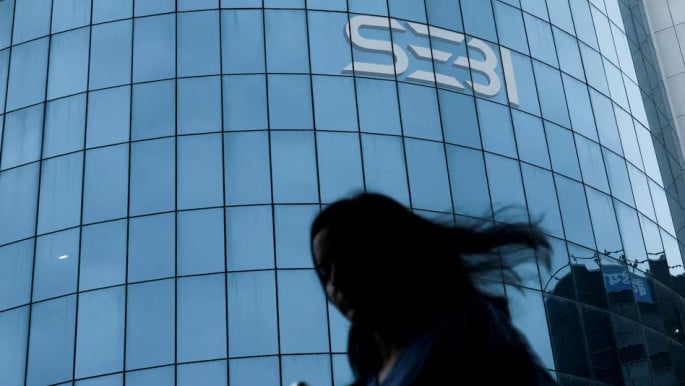No blanket amnesty for serious rights violation, Nepal PM vows to foreign diplomats
Promises to uphold zero-tolerance policy against corruption and ensure transparency and accountability.
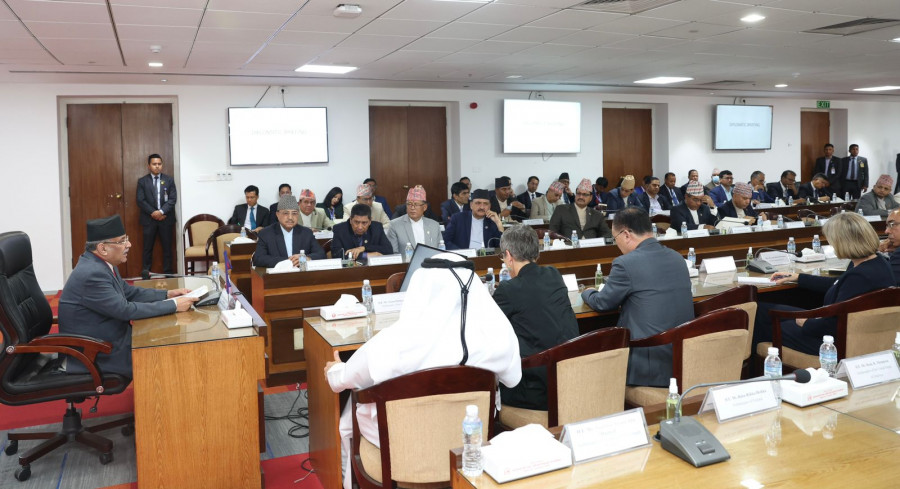
Kathmandu: Nepal Prime Minister Pushpa Kamal Dahal said on Monday that Nepal will pursue an independent foreign policy based on the principles of sovereign equality, non-interference, mutual respect and benefit. Briefing the Kathmandu-based diplomatic community for the first time after assuming the office on December 25, the prime minister stated that “friendship, mutual respect, and cooperation continue to guide Nepal’s external engagements.”
“Protection and promotion of national interest is our foreign policy goal. Two major goals—promoting Nepal’s credentials as a peaceful, inclusive and democratic state, and pursuing economic diplomacy—remain at the core of our foreign policy,” Dahal added.
Representatives from almost all Kathmandu-based foreign missions were present at the briefing in the capital. But there was no question-answer session between the prime minister and the diplomats.
“The current government will make efforts to enhance Nepal’s relations with our immediate neighbours, development partners and destination countries for our migrant workers as well as all other friendly countries,” said Dahal.
The potential of regional cooperation in South Asia is far from being fully realised, the prime minister said. “We will make efforts to revive the SAARC process and to ensure a renewed momentum in BIMSTEC so that its unique potential as a link between South Asia and Southeast Asia is realised.”
Ahead of Dahal’s statement, foreign minister NP Saud addressed the gathering and opened the floor.
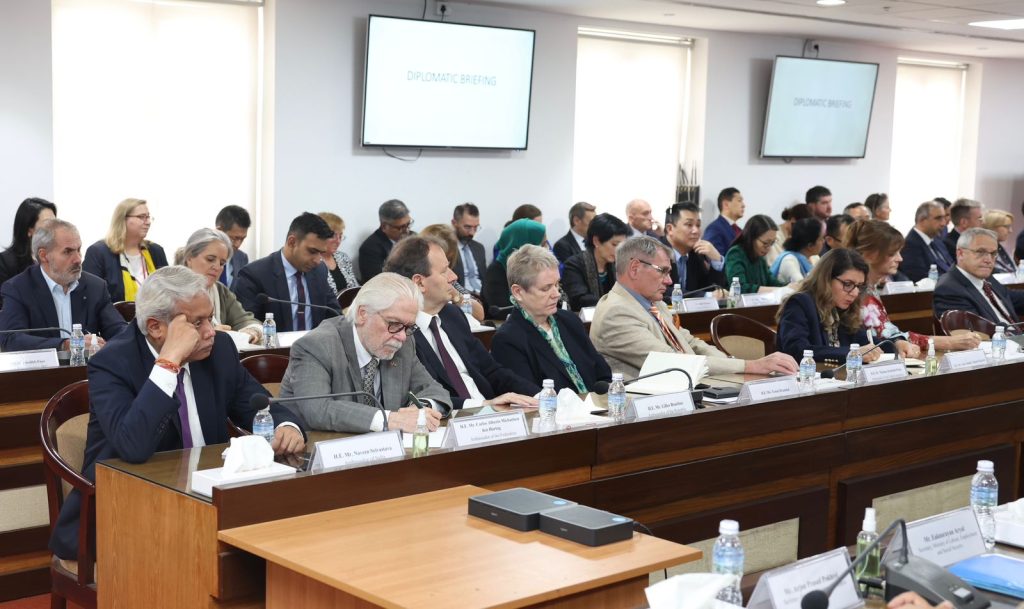
The prime minister also told the diplomatic community that Nepal always prioritises safety, security, and well-being of its migrant workers and the country will keep on engaging and contributing to critical global issues such as peace and security, sustainable development, human rights and climate change.
Dahal gave the latest status of what the Nepal government has been doing, including an update on the recent political developments in Nepal. Then he outlined the country’s current economic situation and the major priorities of his government and finally, he touched on his foreign policy priorities. The prime minister also assured of Nepal’s commitment to multilateralism and to the principles enshrined in the UN Charter.
On the domestic front, Dahal said his government is committed to strengthening and empowering democratic institutions; building a peaceful, prosperous, and inclusive society; and achieving economic transformation—which form the core mandate of the current government.
“Towards that end, our efforts will be directed towards institutionalising the federal democratic republic system. We will strive to end discrimination of all kinds and endeavour to build a just and equitable society,” said Dahal.
As the government is also coping with growing cases of corruption, the prime minister said that his government will “uphold a zero-tolerance policy against corruption and aim to ensure transparency and accountability at all levels.”
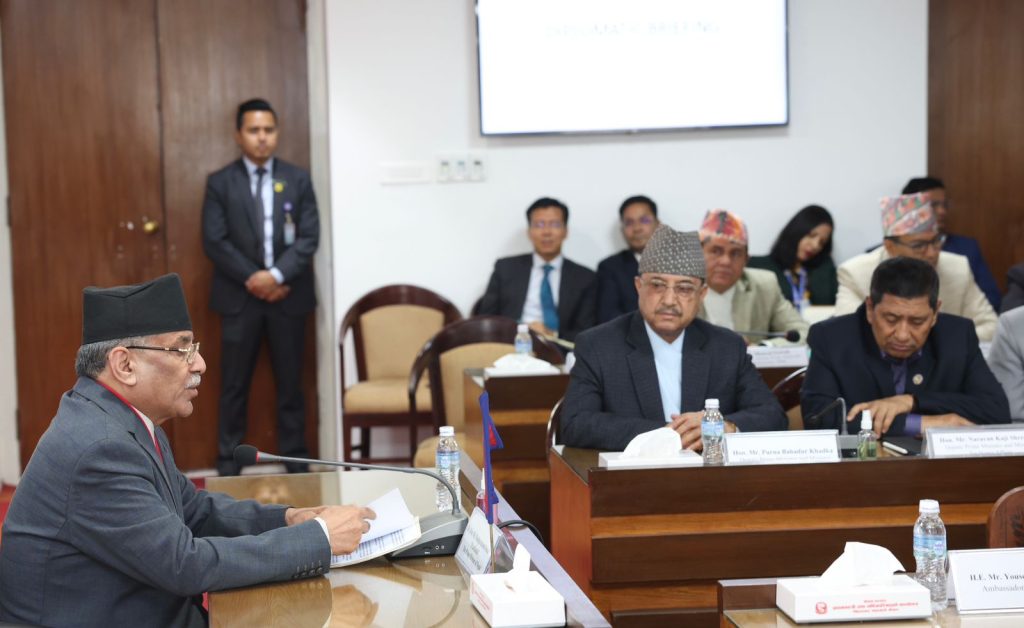
During the briefing, Dahal also touched upon the ongoing transitional justice process. “We are committed to bringing our successful, unique and home-grown peace process to a logical conclusion. We attach high importance to the consolidation of peace, reconciliation and harmony in society and reaffirm our commitment to conclude the remaining task of the transitional justice process and provide justice and reparation to the victims of the conflict.”
He added: “The Comprehensive Peace Accord, the directives of the Supreme Court, and relevant international commitments, as well as the concerns of the victims, will guide our endeavours towards this end. Having come through the course of a successful peace process, I can assure our partners that Nepal can conclude the process of transitional justice in an equally unique way, based on the earlier mentioned parameters.”
The prime minister said there would be no blanket amnesty in cases of serious violation of human rights.
Dahal briefed the diplomatic community about the current economic situation and the challenges that Nepal is facing. He spoke about the Covid pandemic, its cumulative impact, the disruption in the supply chain of food, fertiliser, fuel and other essentials that has hit just about everyone, particularly the poorest and the vulnerable, which risked reversing Nepal’s development gains.
“We need to redouble our efforts in all three sectors—agriculture, manufacturing and services, to achieve the desired growth target. Meeting the targets of revenue collection and capital expenditure have become difficult. Thus, the budget deficit has emerged, and there is some gap between revenue collection and public expenditure.”
The prime minister also told the diplomatic community about the efforts being made by his government to overcome the crisis faced by the economy, measures that have been taken by the government and encouraged them to invest, especially in areas of clean energy, tourism and infrastructure. “In the specific context of the current economic stress, we urge the development partners for enhanced levels of unconditional and budgetary support to enable us to plug resource gaps in critical areas,” said Dahal.
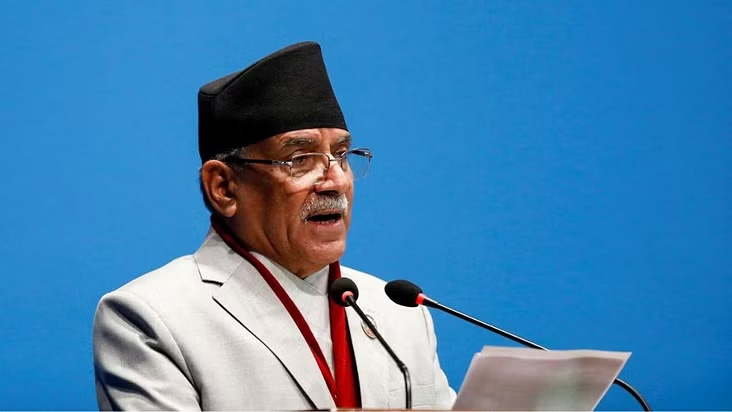 The prime minister also stated Nepal’s plan to graduate from the UN’s Least Developed Countries category, by 2026. “Though hit hard by multiple challenges beyond our control, graduation has been our national resolve and we are committed to making it smooth, sustainable, and irreversible. Shortly, we are finalising the graduation strategy paper that will be shared with the development partners.”
The prime minister also stated Nepal’s plan to graduate from the UN’s Least Developed Countries category, by 2026. “Though hit hard by multiple challenges beyond our control, graduation has been our national resolve and we are committed to making it smooth, sustainable, and irreversible. Shortly, we are finalising the graduation strategy paper that will be shared with the development partners.”
As Nepal does not want to remain in the “middle income” trap, the prime minister said that it is still crucial to receive continued and focused international support measures from development partners.
“Such support measures should include, inter alia, concessional and grant finance, preferential market access and technology transfer for an extended period of time even beyond graduation,” said Dahal.
The prime minister also touched upon the climate crisis, Nepal’s commitment to the Paris Agreement and to meeting the ambitious climate targets. Nepal needs easy and flexible access to climate finance for mitigation, adaptation, transfer of technology and capacity-building.
Dahal informed the diplomatic community that Nepal is close to concluding the periodic Mutual Evaluation under the Asia Pacific Group on Money Laundering (APG-AML/CFT) where the country is committed to continuously improving its capacity to address the new and emerging challenges. “We seek continuous cooperation and understanding from our partners, as always, after the completion of the assessment and publication of the report in August-September this year,” the prime minister added.


